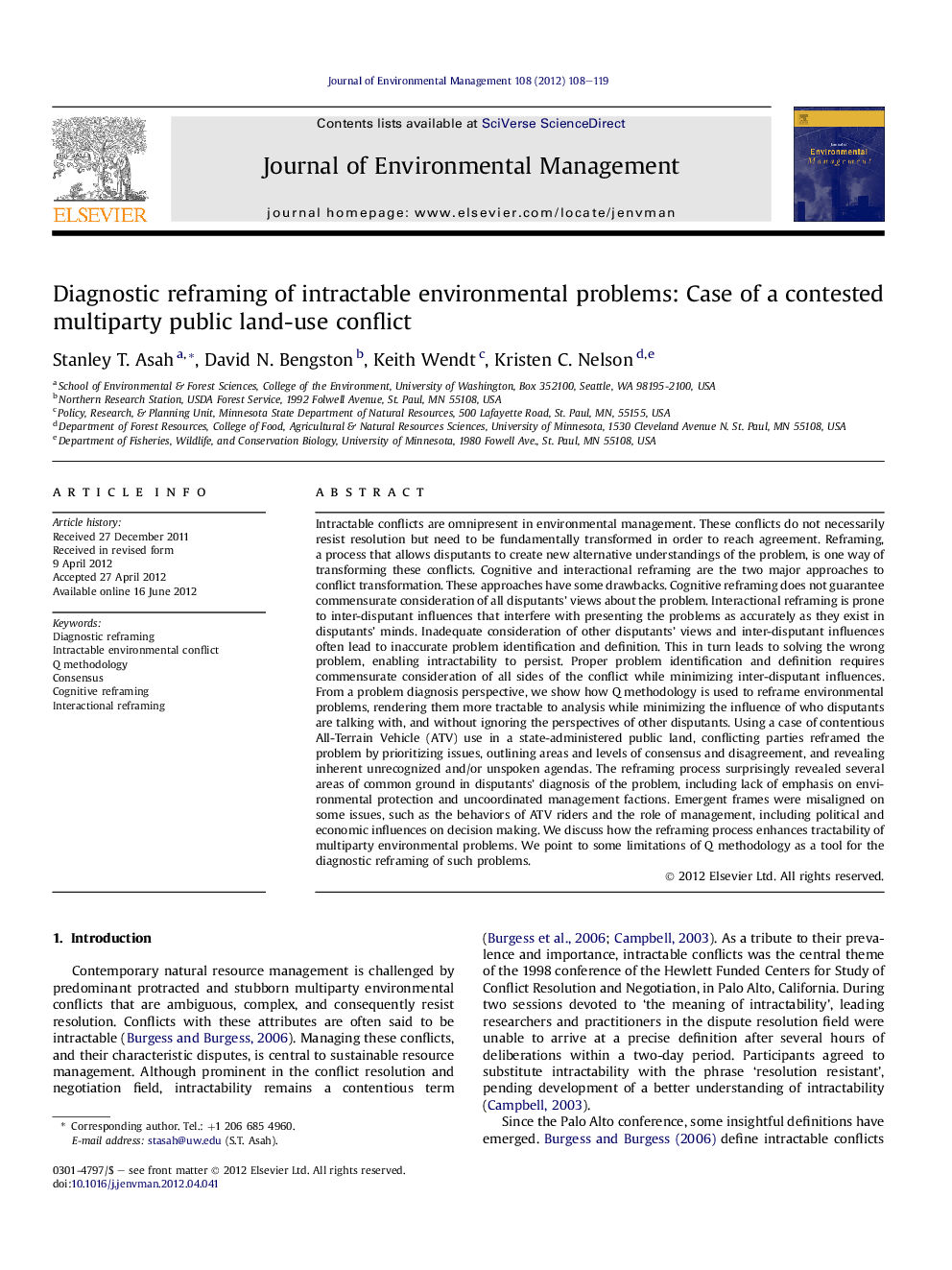| کد مقاله | کد نشریه | سال انتشار | مقاله انگلیسی | نسخه تمام متن |
|---|---|---|---|---|
| 1056776 | 1485304 | 2012 | 12 صفحه PDF | دانلود رایگان |

Intractable conflicts are omnipresent in environmental management. These conflicts do not necessarily resist resolution but need to be fundamentally transformed in order to reach agreement. Reframing, a process that allows disputants to create new alternative understandings of the problem, is one way of transforming these conflicts. Cognitive and interactional reframing are the two major approaches to conflict transformation. These approaches have some drawbacks. Cognitive reframing does not guarantee commensurate consideration of all disputants' views about the problem. Interactional reframing is prone to inter-disputant influences that interfere with presenting the problems as accurately as they exist in disputants' minds. Inadequate consideration of other disputants' views and inter-disputant influences often lead to inaccurate problem identification and definition. This in turn leads to solving the wrong problem, enabling intractability to persist. Proper problem identification and definition requires commensurate consideration of all sides of the conflict while minimizing inter-disputant influences. From a problem diagnosis perspective, we show how Q methodology is used to reframe environmental problems, rendering them more tractable to analysis while minimizing the influence of who disputants are talking with, and without ignoring the perspectives of other disputants. Using a case of contentious All-Terrain Vehicle (ATV) use in a state-administered public land, conflicting parties reframed the problem by prioritizing issues, outlining areas and levels of consensus and disagreement, and revealing inherent unrecognized and/or unspoken agendas. The reframing process surprisingly revealed several areas of common ground in disputants' diagnosis of the problem, including lack of emphasis on environmental protection and uncoordinated management factions. Emergent frames were misaligned on some issues, such as the behaviors of ATV riders and the role of management, including political and economic influences on decision making. We discuss how the reframing process enhances tractability of multiparty environmental problems. We point to some limitations of Q methodology as a tool for the diagnostic reframing of such problems.
► Prognostic reframing using Q methodology was shown to make an intractable environmental problem more tractable to analysis.
► The drawbacks of both Cognitive and Interactional reframing approaches were minimized by using Q methodology.
► Three diagnostic frames emerged from the reframing process.
► Consensus and disagreement among frames were outlined and contained issues were prioritized.
► The degree of tractability was approximated using the frame clash/alignment concept.
Journal: Journal of Environmental Management - Volume 108, 15 October 2012, Pages 108–119